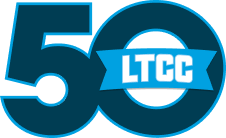Biology 102- Principles of Biology II
Syllabus & Course Information*
*This information is subject to change
Instructor: Sue Kloss
Office: D101 (In the Science Commons area)
Office Hours:
Monday & Wednesday: 10:00 am- 11:00 am
Monday: 1:00 pm- 2:00 pm
Tuesday & Thursday: 9:00 am- 10:00 am
Additional hours are also available by appointment
Phone: (530) 541-4660 x 244
Email: kloss@ltcc.edu
Course Website: www.ltcc.edu/suekloss/bio102
Final Exam: Tuesday, June 21, 2017, 11:00 am- 1:00pm
Course Information:
Bio 102 is the the third course of a 3 quarter introductory biology sequence at Lake
Tahoe Community College for biology majors, focusing on evolution, plant biology and
ecology.
To do well in this course, you must spend time to learn the material! Carnegie Units:
Bio 102= 5 units x 2 Carnegie hours= 10 hours/week study time.
Required Text: Campbell Biology 10th OR ANY ed. by Reece et al
Required Lab Text: Biology Laboratory Manual, 11th edition, by Sylvia Mader
Course Requirements:
Exams: There will be two exams in the course. Exams include all material covered in labs,
lectures, assignments.
Quizzes: You will have one quiz each week. No make ups for any reason. Your lowest quiz grade
will be dropped.
Projects: Please see the handout.
Participation/Lab Notebook: Your attendance in this course is very important. If you have excessive absences (3
or more from lab, 4 or more from lecture) you may be dropped from the course. Each
time you miss a lab after 2, you will lose 1 letter grade from your final grade. Your
lab grade depends on your physical presence as well as completion of your lab assignment
and write-up.
In-class assignments/submission of outlines and lesson objectives: We will have daily in-class assignments. No make-ups, for any reason. No exceptions.
However, I will drop your lowest 2 scores for the quarter in this category.
Homework: Mastering Biology is an optional tool this quarter. However, you must submit all
homework Lesson Objectives electronically to ltccbio102@gmail.com by the due date and time in order to receive credit. No exceptions.
Lab Exam: Lab exam is a cumulative, practical final exam, unless all students can make the
alternative.
Tips for Doing Well in this Course:
Before each class, read the appropriate chapters in the textbook, I strongly recommend
that you use the supplied outlines and fill in with appropriate content as you read.
You must also complete and submit the homework questions. Please use your own words
and summarize; use bullet points! I encourage you to work together with your classmates;
however, plagiarism or copying will not be tolerated. The material in the outlines
and lectures are not necessarily identical to the order of material in the recommended
text. Consistent hard work and effort is required for you to do well in the class. One excellent
strategy is to work hard at taking good notes in class; in the evening, recopy your
notes and review them for 30-45 minutes. Prepare for quizzes by reviewing material
covered in class. To do well in this course, you must spend time to learn the material!
Grading:
| Grading Summary | Grading Scale | |
| 15% - In class quizzes, assignments/outlines | A= 90-100 | |
| 20% - Midterm | B= 80-89 | |
| 25% - Final Exam | C= 70-79 | |
| 10% - Lab exam | D= 60-69 | |
| 15% - Lab reports/participation | F= below 60 | |
| 5% - Term Project | ||
| 10% - Homework | ||
| 100% Total |
Study Buddies:
Choose 2 or 3 people for your study and group buddies. These are the people who will
pick up handouts for you if you are absent, and who will share notes with you for
the class you missed. With your study buddies, you can ask about material you don’t
understand, divvy up study chores, prepare for exams, etc. Learning cooperatively
is wonderful, but it doesn’t work if every one doesn’t do an equal share of the work.
Take good care of your buddies! Do not take advantage of them! You may always discuss
course information and assignments together for labs and homework (except on exams),
but all answers must be your own. Do not use the same wording as anyone else on any
assignment.
Exam/Reschedules:
You may reschedule an exam or class work only by discussing it with me in advance,
and providing a doctor's note. (Emails and phone messages do not satisfy this requirement).
If you arrange a makeup and take the exam within 2 working days of when it was originally
scheduled, you forfeit 15% of the total possible. If you complete the exam within
7 days you lose 50 %. You may not retake an exam more than one week after the scheduled
original. If you miss a lab practical you will retake it in alternate format, subject
to the above penalties. No early final exams will be given. If you have an exam rescheduled,
you forfeit prompt grading privileges and extra credit opportunities for that exam.
Other Info: PLEASE! Turn off ALL electronic equip. before class begins. All electronic
devices are prohibited during CLASSES and exams. No electronic devices are allowed
in class for any reason, at any time. All work must be submitted in hard copy; no
electronic submissions, please. No replicate handouts will be available. No late
work will be accepted, and no extensions will be allowed.
Academic Dishonesty and Plagiarism Policy:
You may always discuss course information, lesson objectives, and lab assignments
together (except on quizzes, exams and homework), but all answers must be your own.
Do not use the same wording as anyone else on any assignment. When you use someone
else’s idea, be sure to provide a citation. If you are found to be cheating or plagiarizing,
you will receive a 0 for the assignment and may receive a written notation in your
permanent record, and any other penalties as may be applied.
This class will abide by the LTCC’s Student Academic Dishonesty and Plagiarism Policy
(please see the College Catalog).
Student Learning Outcomes:
1. Investigate general patterns of change in organisms over time via micro and macroevolution,
and apply these patterns to analyze adaptations of particular organisms.
2. Identify the characteristics that define life, and those that distinguish various life forms and taxa.
3. Diagram structural and functional components of major plant systems in important plant taxa.
4. Analyze levels of organization and important structures and processes in populations and ecosystems.
2. Identify the characteristics that define life, and those that distinguish various life forms and taxa.
3. Diagram structural and functional components of major plant systems in important plant taxa.
4. Analyze levels of organization and important structures and processes in populations and ecosystems.
What you really need to know or be able to do:
1. Relate how organisms can change over time through the process of natural selection
to various types of evolution.
2. Relate characteristics of common representatives of all kingdoms of living things to local examples.
3. Describe experiments that examine the origin of life on earth.
4. Describe characteristics and structures of major fungal taxa.
5. Relate tissue systems, hormones, and reproductive cycles to various major plant divisions.
6. Draw or describe structure and explain basic function of all major plant systems.
7. Compare and contrast the evolution of bryophytes, pteridophytes, seed plants, and flowering plants.
8. Apply taxonomic classification and explain evolutionary relatedness between local and nonlocal organisms.
9. Describe levels of organization and important processes in ecosystems.
10. Analyze how and why populations fluctuate and identify factors that regulate populations.
11. Relate species interactions to their effects on communities and ecosystems.
12. Link human activities to their impacts on various ecosystems.
2. Relate characteristics of common representatives of all kingdoms of living things to local examples.
3. Describe experiments that examine the origin of life on earth.
4. Describe characteristics and structures of major fungal taxa.
5. Relate tissue systems, hormones, and reproductive cycles to various major plant divisions.
6. Draw or describe structure and explain basic function of all major plant systems.
7. Compare and contrast the evolution of bryophytes, pteridophytes, seed plants, and flowering plants.
8. Apply taxonomic classification and explain evolutionary relatedness between local and nonlocal organisms.
9. Describe levels of organization and important processes in ecosystems.
10. Analyze how and why populations fluctuate and identify factors that regulate populations.
11. Relate species interactions to their effects on communities and ecosystems.
12. Link human activities to their impacts on various ecosystems.
| If you require accommodations for a disability, please work with LTCC’s Disability Resource Center and let me know. If you have test accommodations in the Tutoring & Learning Center, you must make an appointment and then notify me via email in order to have the test ready at the appropriate time. |

